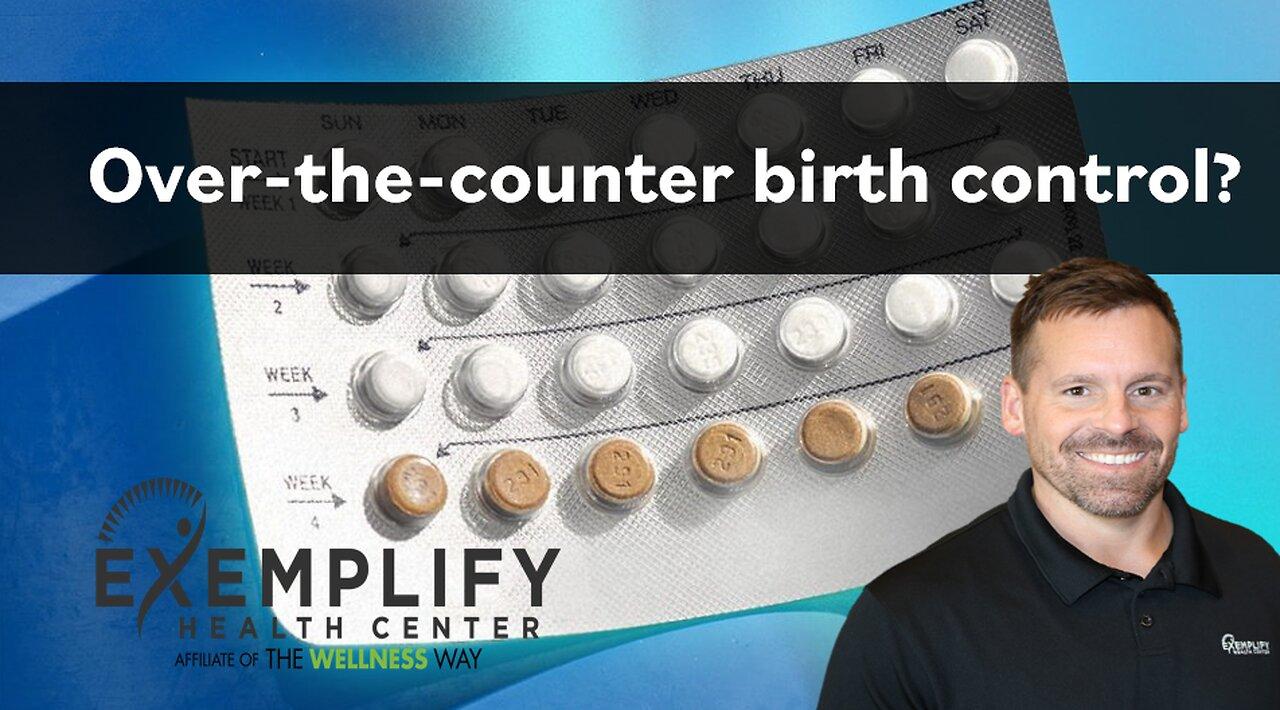Access To Birth Control: The Impact Of Over-the-Counter Options Post-Roe

Table of Contents
Increased Accessibility: Benefits of Over-the-Counter Birth Control
The shift towards OTC birth control offers numerous advantages, significantly impacting the lives of individuals and the public health system as a whole.
Reduced Barriers to Care
Previously, access to birth control was hampered by several significant barriers:
- Financial Barriers: The cost of doctor's visits, prescriptions, and birth control methods themselves created significant financial hurdles for many, particularly those without health insurance or with high deductibles. OTC options drastically reduce these costs.
- Geographical Limitations: Many individuals live in rural areas with limited access to healthcare providers, making regular appointments and obtaining prescriptions challenging. OTC availability expands access to underserved communities.
- Appointment Scheduling Challenges: Scheduling appointments with doctors, navigating insurance complexities, and waiting times for prescriptions can be time-consuming and inconvenient. OTC birth control eliminates these logistical barriers.
The ease of purchasing OTC birth control can also improve adherence to prescribed regimens, leading to more effective contraception and fewer unintended pregnancies.
Empowering Patients
OTC birth control places the power of reproductive health decisions directly in the hands of individuals.
- Increased Privacy: Purchasing birth control without a doctor's visit offers increased privacy and reduces the stigma associated with seeking reproductive healthcare.
- Control Over Their Bodies: The ability to independently manage their reproductive health fosters a sense of control and autonomy over their bodies and futures.
- Improved Self-Management: Increased access encourages proactive self-management of reproductive health, empowering individuals to make informed choices.
Public Health Implications
Increased access to birth control has demonstrably positive effects on public health:
- Reduced Unintended Pregnancies: Studies have consistently shown a correlation between increased access to contraception and a reduction in unintended pregnancies. Wider access to OTC birth control could significantly reduce these rates.
- Lower STI Rates: While birth control doesn't directly prevent all STIs, increased access can lead to more frequent sexual health checkups and conversations, potentially indirectly impacting STI rates.
- Cost Savings for the Healthcare System: Reducing unintended pregnancies translates to significant cost savings for the healthcare system, lowering expenditures on prenatal care, childbirth, and related services.
Potential Challenges and Concerns Surrounding Over-the-Counter Birth Control
While the benefits of OTC birth control are considerable, potential challenges must be addressed proactively.
Misinformation and Misuse
The ease of access also necessitates robust educational initiatives.
- Comprehensive Education: Public health campaigns must provide accurate information regarding proper usage, potential side effects, interactions with other medications, and contraindications for specific birth control methods.
- Reliable Resources: Accessible and reliable online and print resources are crucial to combatting misinformation and ensuring individuals make informed choices.
- Pharmacist Role: Pharmacists can play a crucial role in providing accurate information and answering patient questions at the point of purchase.
Equity and Access Concerns
Ensuring equitable access is paramount to avoid exacerbating existing health disparities.
- Addressing Disparities: Socioeconomic factors, geographic location, and insurance coverage can still create significant barriers to access for marginalized communities. Solutions, such as government subsidies or community programs, must be explored.
- Affordability: Even OTC options might be unaffordable for some individuals. Strategies to ensure affordability are crucial for equitable access.
Regulatory Hurdles and Debates
The regulatory landscape surrounding OTC birth control is complex and constantly evolving.
- Safety and Efficacy: Ongoing debates and controversies surround the safety and efficacy of different birth control methods and their suitability for over-the-counter sale.
- Regulatory Approvals: The process of obtaining regulatory approvals for OTC birth control can be lengthy and challenging, potentially delaying broader access.
The Future of Birth Control Access in a Post-Roe World
The future of birth control access hinges on technological advancements and sustained advocacy efforts.
Technological Advancements
- New Methods: Continued research and development of new and improved birth control methods, including long-acting reversible contraceptives (LARCs) and more user-friendly options, will expand choices and accessibility.
- Digital Health: Telehealth and digital platforms offer potential avenues for providing education, support, and remote monitoring of birth control use.
Advocacy and Policy Changes
- Legislative Efforts: Advocacy groups are pushing for policy changes that increase access to affordable and comprehensive reproductive healthcare, including birth control.
- Public Awareness: Raising public awareness about the importance of birth control access and addressing misinformation is vital.
Conclusion: Securing Access to Birth Control Post-Roe
The expansion of access to birth control, especially through OTC options, presents a significant opportunity to improve reproductive health outcomes and reduce unintended pregnancies. While challenges remain, addressing issues of misinformation, equity, and regulation is crucial to ensuring that all individuals have access to the birth control methods that best suit their needs. We must continue to advocate for policies and programs that expand access to birth control and support organizations working to improve reproductive healthcare. Learn more about access to birth control options in your area and support initiatives that champion reproductive freedom. Together, we can secure access to birth control for everyone. (Insert links to relevant resources here).

Featured Posts
-
 Alteawn Yezz Slslt Njahh Dd Alshbab
Apr 30, 2025
Alteawn Yezz Slslt Njahh Dd Alshbab
Apr 30, 2025 -
 Schneider Electric Fostering Womens Career Growth In Nigeria
Apr 30, 2025
Schneider Electric Fostering Womens Career Growth In Nigeria
Apr 30, 2025 -
 Extra Inning Magic Guardians Defeat Royals In Season Opener
Apr 30, 2025
Extra Inning Magic Guardians Defeat Royals In Season Opener
Apr 30, 2025 -
 As Festas De P Diddy Um Documentario Com Donald Trump Beyonce E Jay Z
Apr 30, 2025
As Festas De P Diddy Um Documentario Com Donald Trump Beyonce E Jay Z
Apr 30, 2025 -
 Sud Sa V Stredu Rozhodne O Obnove Konania V Pripade Unosu Studentky Sone
Apr 30, 2025
Sud Sa V Stredu Rozhodne O Obnove Konania V Pripade Unosu Studentky Sone
Apr 30, 2025
Latest Posts
-
 Wayne Gretzkys Nhl Goal Record Tied By Alex Ovechkin
Apr 30, 2025
Wayne Gretzkys Nhl Goal Record Tied By Alex Ovechkin
Apr 30, 2025 -
 Nhl News Ovechkin Ties Gretzkys All Time Goal Record
Apr 30, 2025
Nhl News Ovechkin Ties Gretzkys All Time Goal Record
Apr 30, 2025 -
 Alex Ovechkin Ties Wayne Gretzkys Nhl Goal Record
Apr 30, 2025
Alex Ovechkin Ties Wayne Gretzkys Nhl Goal Record
Apr 30, 2025 -
 Analyzing The Celtics Cavaliers Game 4 Takeaways Featuring Derrick Whites Performance
Apr 30, 2025
Analyzing The Celtics Cavaliers Game 4 Takeaways Featuring Derrick Whites Performance
Apr 30, 2025 -
 Ovechkins 894th Goal Nhl Record Tied With Wayne Gretzky
Apr 30, 2025
Ovechkins 894th Goal Nhl Record Tied With Wayne Gretzky
Apr 30, 2025
